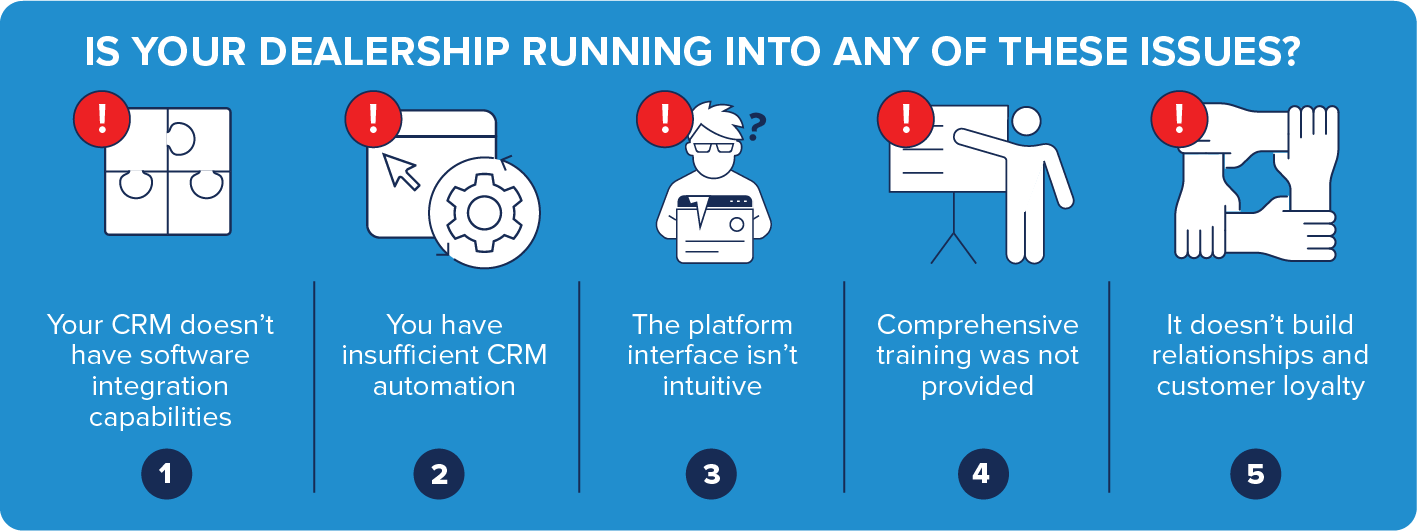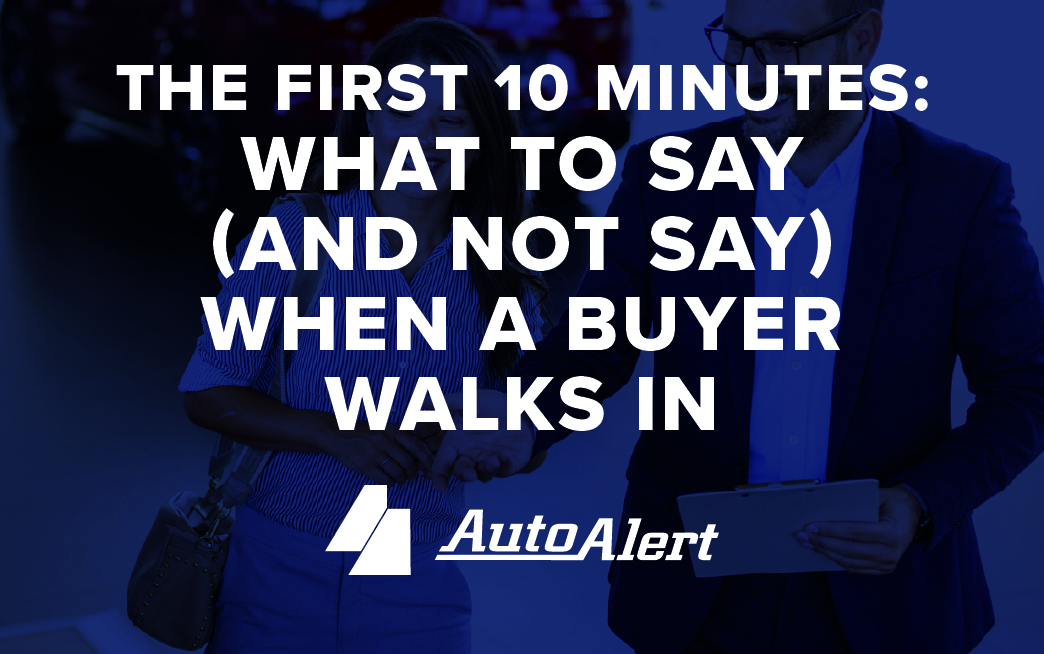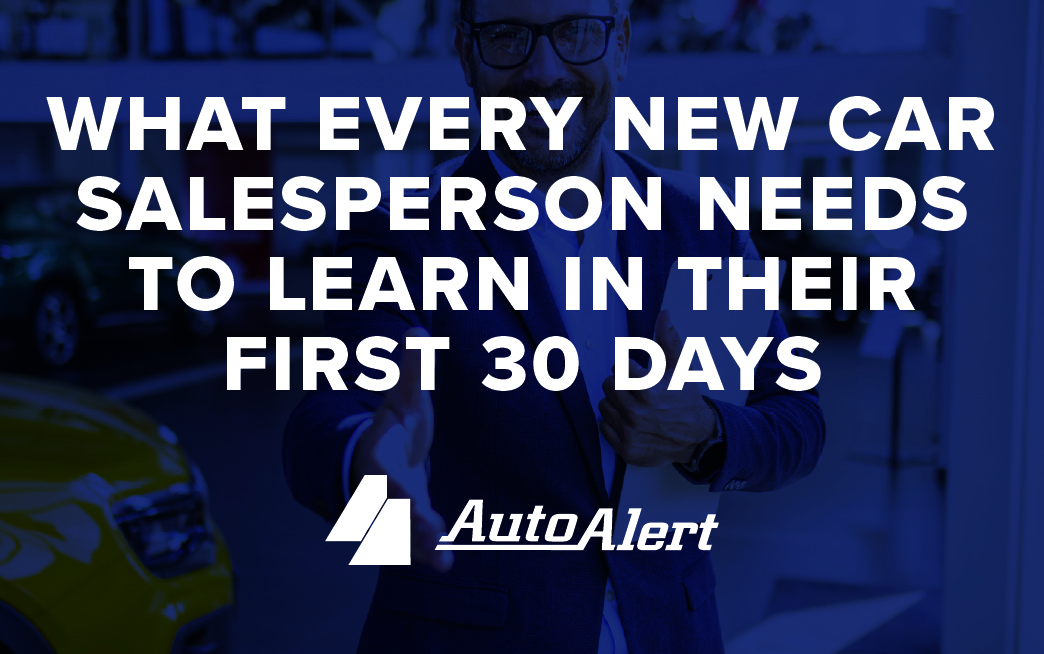5 Signs It’s Time to Change Your Dealership’s CRM
Your dealership CRM should be your dealership’s most powerful tool. From streamlining sales processes to enhancing the customer experience, a high-powered CRM can make all the difference in improving sales. However, not all CRMs are created equally, so how do you know when to change your dealership CRM?
If you’ve noticed inefficiencies in your sales pipeline, dissatisfied customers, or an overwhelmed team, your CRM might be the culprit and could be holding your dealership back from reaching its full potential.


How do you know if you fall into this category? Let’s take a look at some of the most important indicators that it’s time to make a CRM upgrade:
Lack of Integration: Your CRM Can’t Connect with Other Software
A CRM’s ability to integrate with third-party apps and other tools is increasingly valuable. Integrations allow your team to see your dealership goals, the steps to turn a lead into a prospect, what is working for marketing campaigns, and more.
With integrations, you can receive insights into how your team interacts with customers and what drives desirable outcomes via social media, email, and online support. These capabilities also allow your team to increase customer interactions, providing ways to build relationships and rapport.


With integrations built-in, you no longer have to consolidate data from multiple channels, and employees no longer waste time managing multiple logins, searching for information, and contacting other staff to get insights that integrations provide automatically.
When a CRM doesn’t have full integration capabilities, employees spend too much time toggling between the CRM and other tools. This type of menial work drains productivity, and eliminating these tasks improves morale and boosts output.
Integrations also enable mapping the customer journey by providing extensive insights into customer behavior. You can then use these insights to develop highly targeted marketing campaigns and forecasts based on real-time information.
Limited Automation: Your CRM Requires Too Much Manual Work
High-functioning CRM providers prioritize automating repetitive but critical tasks and will automate wherever possible to streamline dealership operations. What to look for in an automotive CRM:
- Contact Management: Automation ensures smoother operations, from enabling employees to access customer data for personalized responses to triggering automatic updates, emails, or actions when specific changes occur in records or a specific number of days have passed.
- Lead Management: Pipeline management, lead generation, lead tracking, lead scoring, and lead assignment are time-consuming and cumbersome when done manually. Automating these processes allows your sales team to focus on building relationships and closing deals instead of administrative work.
- Reporting: Data-driven decision-making eliminates guesswork. Automated, real-time reports provide valuable insights for sales performance analysis, forecasting, and mapping customer journeys—helping you make smarter business decisions.
- Integrations: Seamlessly connect your CRM with other tools, such as calendars, email, and social media. Automated integrations ensure your team has everything they need in one place, enhancing productivity.
- Document Management: Dealerships generate countless documents, from contracts and invoices to quotes and templates. A centralized system for storing and accessing these files simplifies processes and helps your team work more efficiently.


By leveraging these automation capabilities, your CRM can transform your dealership’s workflows, saving time and improving performance.
Complex Interface: Your CRM Is Hard to Use
Choosing a CRM with a modern, user-friendly interface is critical to your dealership’s success. Older platforms with clunky, outdated designs often create more frustration than solutions, setting your team up for failure.
Prioritize a vendor offering an intuitive interface optimized for desktop and mobile use. This will ensure your team can quickly adapt to the system and maximize its potential.
An intuitive CRM should allow employees to locate key features, data, and tools without navigating through layers of menus or instructions. Simplicity reduces errors, saves time, and increases efficiency. It will also allow users to customize dashboards, workflows, and features.


Team members need access to CRM features while on the go. A responsive, fully functional mobile version ensures critical tasks can be completed anytime, anywhere.
An intuitive interface should support team collaboration with shared calendars, task assignments, and real-time updates. This will improve communication across departments and ensure everyone stays on the same page.
Even the most advanced CRM system won’t deliver results if your team doesn’t use it. An intuitive platform encourages adoption, minimizes the learning curve, and empowers employees to leverage its full potential.
Insufficient Training: Your Team Isn’t Fully Utilizing the CRM
While a CRM delivers the critical information your team needs to understand and sell to customers, its success depends on how well your employees are trained to use it. Without comprehensive training, even the most powerful CRM can become an underutilized tool, costing your dealership time and money.
Many CRM providers need to offer thorough onboarding programs. Otherwise, employees may be confused or frustrated and unable to fully leverage the system’s potential. Expecting your team to figure out a complex platform on their own is a common mistake.


Comprehensive onboarding is just the beginning. Continued support ensures your team stays updated on new features and best practices. Periodic refresher courses or workshops can reinforce learning and help address any challenges as they arise.
Proper training ensures that employees understand not only how to use the CRM but also the importance of CRM. A well-trained team will be more confident and efficient. By investing in proper training, you can ensure your employees adopt the CRM and use it to drive your dealership’s success.
Weak Relationship Building: Your CRM Fails to Enhance Customer Loyalty
The primary goal of a CRM is to foster meaningful relationships between your dealership and its customers. However, if your CRM relies on outdated practices or superficial gestures, it can have the opposite effect—damaging relationships rather than building them.


For example, sending a customer a birthday card or marking the anniversary of their car purchase might have once been seen as thoughtful. But in today’s hyper-personalized world, these generic touch points often feel forced, insincere, and out of touch. Worse, they can leave customers feeling like just another name in your database rather than a valued individual.
Modern CRMs equipped with advanced data analytics go beyond basic milestones. They analyze customer behavior, preferences, and engagement patterns to deliver actionable insights. These insights allow your team to anticipate customer needs and preferences, tailor communication throughout the buying journey, and provide support during every purchase and ownership cycle phase.
A comprehensive CRM dynamically matches and updates customer profiles with real-time data, ensuring accuracy and relevance. This means your team is responding to customer behaviors and needs, including;
• When a customer browses specific models or schedules a test drive.
• Indications that their current vehicle may be nearing the end of its lifecycle.
• Service history or warranty milestones that might prompt follow-ups.
By leveraging advanced CRM capabilities, your dealership can replace outdated gestures with meaningful interactions that resonate with customers, deepen loyalty, and create lasting relationships.
CRMs were and are great for their intended purpose, but an outdated CRM is too limited in an increasingly competitive market. Customers expect a seamless, personalized, and beneficial experience. Once dealerships realize they need to consider a CRM upgrade, where can they turn?


AutoAlert CRM can help answer that question. AutoAlert CXM sets a much higher benchmark in the industry and greatly exceeds the capabilities of all other providers’ CRM offerings. It has the infrastructure for synergies between software tools, your employees, and your customers to effectively differentiate your dealership from the competition. Thus, it is an easy choice when changing your dealership CRM.
“AutoAlert CXM brings all our leads into one place and builds a robust profile using every available customer insight. Our users stay on the move with the mobile app, giving them easy access to opportunities and notifications to keep us in the loop in real time. Now, with follow-up processes unique to each customer, we are having more meaningful conversations, increasing sales and service, and building stronger relationships.”
- Justin Merchant, Sales Manager at Summit Ford
Learn how AutoAlert’s CRM, AutoAlert CXM, is the right next move for your dealership.
CRM.org. “The Ultimate List of CRM Statistics for 2023.” CRM.org, https://crm.org/crmland/crm-statistics. Accessed 19 Nov. 2024.
Salesforce. “Companies Report Cost Savings and Increased Productivity with Salesforce.” Salesforce.com, 7 Nov. 2022, https://www.salesforce.com/news/press-releases/2022/11/07/companies-report-cost-savings-with-salesforce/. Accessed 19 Nov. 2024.
Software Advice. “85% of Employees Say Easy-to-Use CRM Systems Boost Productivity.” Software Advice, https://www.softwareadvice.com/resources/crm-user-interface-productivity-study/. Accessed 19 Nov. 2024.
Bridge Rev. “Why CRM Implementations Fail.” Bridge Rev, https://www.bridgerev.com/blog/why-crm-implementations-fail. Accessed 19 Nov. 2024.
Salesforce. “Customer Service Stats That Matter.” Salesforce.com, https://www.salesforce.com/blog/customer-service-stats/. Accessed 19 Nov. 2024.
McKinsey & Company. “Harnessing Real-Time Data for Improved Customer Experience.” CX Today, https://www.cxtoday.com/data-analytics/harnessing-real-time-data-for-improved-customer-experience-understanding/. Accessed 19 Nov. 2024.https://zipdo.co/research/ai-in-the-car-dealership-industry-statistics/



